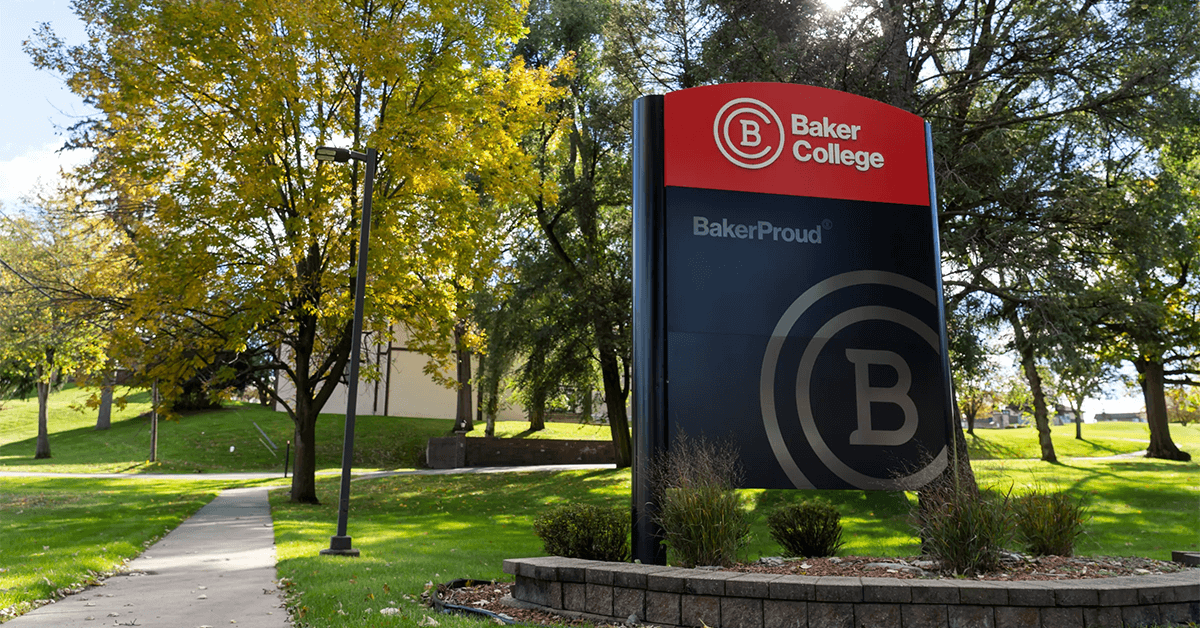A Visitor's Guide to Cannabis in Detroit During the NFL Draft

With the NFL draft approaching and many gearing up for a trip to Detroit, there's a budding interest among visitors in exploring the city's cannabis offerings. Since the legalization of recreational cannabis in Michigan, Detroit has seen the emergence of numerous dispensaries throughout its neighborhoods. Although the downtown area, the heart of NFL draft activities, lacks these establishments, the Detroit Free Press has compiled essential information for those keen on discovering what the city has to offer beyond the draft.
Legal Status of Recreational Cannabis in Detroit
Michigan's electorate voted in favor of recreational cannabis in 2018, allowing individuals aged 21 and above to partake legally. The city of Detroit welcomed its first recreational cannabis sales in January 2023, marking a significant milestone in its cannabis industry journey.
Where to Purchase Recreational Cannabis
Detroit boasts 31 recreational cannabis dispensaries scattered across various neighborhoods. While downtown Detroit is devoid of these establishments, a significant concentration can be found along 8 Mile Road and within the Corktown neighborhood, providing accessible options for those willing to explore. The city's official website, DetroitMI.gov, features a detailed map under the Civil Rights, Inclusion & Opportunity Department's "Office of Marijuana Ventures & Entrepreneurship," guiding visitors to the nearest dispensaries.
Dispensary Visits: What to Expect
Upon visiting a dispensary, patrons must present a valid form of identification, such as a driver's license, to confirm they are at least 21 years old. Transactions are cash-only due to federal restrictions on cannabis, though many dispensaries conveniently provide ATMs on-site. Michigan law permits the purchase of up to 2.5 ounces of cannabis flower and no more than 15 grams of concentrate per transaction, with the average price for an ounce of recreational flower around $92, based on February data from the Michigan Cannabis Regulatory Agency.
Consumption Guidelines
Michigan legislation prohibits public cannabis consumption, limiting use to private settings like a personal residence. This presents a challenge for visitors staying in hotels or short-term rentals, where policies on cannabis use should be verified in advance. Furthermore, the NFL maintains a strict no-cannabis policy at its Draft Experience events.
Interstate Travel with Cannabis
Transporting cannabis across state lines remains a federal offense, despite Michigan's dispensaries welcoming out-of-state customers. Purchasers are advised to consume their products within state boundaries to avoid legal complications.
Embracing Cannabis Tourism in Michigan
Cannabis tourism is gaining traction in Michigan, offering an array of experiences for enthusiasts and casual consumers alike. For those visiting Detroit for the NFL draft and interested in the cannabis scene, thorough planning and adherence to local laws ensure a hassle-free and enjoyable experience.
For more detailed insights on navigating the cannabis landscape in Michigan, the Michigan Marijuana Buyers Guide is an invaluable resource. Covering everything from dispensary etiquette to legal consumption practices, it's designed to assist visitors in fully appreciating the cannabis culture in the Great Lake State.
High Profile Ironwood Launches Unique Reward Campaign for MN Cannabis Consumers

C3 Industries, a cannabis enterprise based in Ann Arbor, Michigan, has unveiled an innovative campaign at its High Profile Ironwood dispensary aimed at rewarding Minnesota's cannabis aficionados. Dubbed the "Gas for Gas Campaign," this initiative allows customers to earn prepaid gas cards in exchange for their purchases at the Ironwood location, emphasizing the company's creative approach to customer engagement.
The campaign is straightforward: Minnesota residents aged 21 and over who present a valid state driver's license and spend $250 or more at the High Profile Ironwood dispensary are eligible to receive a $25 prepaid gas gift card. In addition to this unique offer, customers can also explore a variety of attractively priced cannabis product bundles and deals available at this newly launched dispensary. The "Gas for Gas Campaign" cleverly nods to the cannabis community's slang term "gas," referring to the potent, distinctive scent characteristic of certain cannabis strains, mirroring the intense aroma akin to gasoline.
Ankur Rungta, CEO and co-founder of C3 Industries, expressed his enthusiasm for the campaign, stating, "Launching the 'Gas for Gas Campaign' at our High Profile Ironwood location marks an exciting step for us. We're not just selling cannabis; we're offering a comprehensive experience that marries the quality of our products with the practical benefits of gas cards, reflecting our dedication to innovation and customer satisfaction. We're eager for cannabis enthusiasts to experience what we've built here as we continue to push the boundaries of what a cannabis dispensary can offer."
High Profile Ironwood is located at 100 West Cloverland Drive, Ironwood, with operating hours from 9:00 a.m. to 9:00 p.m. CST daily. Situated about a two-hour drive from Duluth, Minnesota, the dispensary stands out for its competitive pricing and a broad range of discounts for various community members, including seniors, veterans, medical cardholders, college students, and cannabis industry employees. The selection at High Profile Ironwood spans a wide array of high-quality cannabis products, including flower, pre-rolls, edibles, concentrates, vape cartridges, tinctures, topicals, and accessories, featuring C3's exclusive Cloud Cover brand and its everyday line of flower, concentrates, vape cartridges, and gummies named Galactic.
Furthermore, the High Profile Ironwood dispensary enhances the shopping experience for High Roller Loyalty members by offering points for every dollar spent, which can be redeemed at their convenience. Membership benefits include 50 free points upon registration, early access to special events and offers, referral advantages, double points on Tuesdays, and exclusive members-only discounts.
Planning Your Visit to Ann Arbor's Hash Bash: Parking Options and More

Ann Arbor is gearing up for its 53rd Hash Bash celebration, set to take place on the Diag this Saturday. The event, which commences at "high noon," is a longstanding tradition celebrating cannabis, featuring a variety of activities including live music, vendor booths, and even a treasure hunt. It will run in tandem with the Monroe Street Fair, offering attendees a full day of festivities.
The inception of Hash Bash dates back to 1972, catalyzed by the conviction of activist John Sinclair for the possession of two cannabis joints. In a show of solidarity and protest, musicians and cannabis enthusiasts gathered at the University of Michigan's Crisler Arena, engaging in public smoking sessions to challenge the ruling. Despite cannabis not being legalized in Michigan until 2018, the event has persisted annually, becoming a hallmark of advocacy and celebration.
This year's Hash Bash comes shortly after the passing of John Sinclair, who died at the age of 82, just days before the event. His legacy, along with that of other activists, will be highlighted through speeches from notable figures such as Leni Sinclair, Chuck Ream, Tim Beck, U.S. Representative Debbie Dingell, and Senator Jeff Irwin.
Event Parking and Legal Reminders
Participants looking for parking will find several paid options in the vicinity of downtown Ann Arbor, including:
- Street parking around downtown.
- Maynard Structure at 324 Maynard St.
- Library Lane Parking Garage at 319 S. 5th Ave.
- Fourth and William Public Parking at 115 E. William St.
- Forest Avenue Parking Garage at 650 S. Forest Ave.
Attendees are reminded of the importance of responsible celebration. It remains illegal to drive under the influence of cannabis, and the consumption of cannabis products inside a vehicle on Michigan roads is prohibited.
Event Details:
- Location: The Diag, 913 S. University Ave.
- Date and Time: Saturday, April 6th, from noon until to be announced.
In the Ann Arbor area, over 20 cannabis dispensaries cater to adults 21 and older, allowing the purchase of up to 2.5 ounces of cannabis products daily. This event highlights the vibrant cannabis culture in the area and serves as a reminder of the ongoing discussions around cannabis use and legislation.
Muskegon to Host Cannabis-Friendly Campsite at The Grassy Knoll This Summer

This summer, Muskegon is set to welcome a unique addition to its array of attractions with the introduction of a cannabis-friendly campsite, courtesy of The Grassy Knoll Recreational Dispensary. Situated on a serene wooded hilltop at 2125 Lemuel Street, and occupying a five-acre space adjacent to its premises, the dispensary is transforming the area into a welcoming haven for cannabis enthusiasts. Named after its picturesque location above Business Route U.S. 31 and Seaway Drive, The Grassy Knoll stands apart from residential and commercial zones, offering a secluded retreat.
Owners Janet Tombre and Fred Cini are gearing up to accommodate at least 50 RVs, with provisions also made for tent camping. The site will be equipped with essential amenities such as portable bathrooms, water supply, picnic tables, and bonfire pits, ensuring a comfortable and enjoyable stay for all visitors.
In a strategic partnership, The Grassy Knoll has teamed up with the Burning Foot Beach Festival, serving as a lodging partner for the event this year. Festival attendees who choose to camp at The Grassy Knoll will benefit from complimentary shuttle service to Pere Marquette, enhancing the festival experience. While pricing details are yet to be finalized, Tombre assures that rates will be competitive with those of the Burning Foot campsite.
This collaboration with Burning Foot Beach Festival is poised to alleviate the lodging crunch experienced during the event, which attracts thousands and sees its 25 RV and 30 tent sites at Pere Marquette sell out swiftly. According to Allen Serio, co-chair of the festival, the partnership will significantly expand lodging options for attendees.
Campers at The Grassy Knoll will enjoy exclusive merchandise and cannabis products, permissible for use on-site. Although the campsite is licensed for consumption, guests will need to visit the dispensary, conveniently located a short walk away, for their purchases.
Operating until midnight, The Grassy Knoll offers a perfect setting for unwinding with a late-night session after a day of beachside fun. Beyond the festival in August, the campsite will accept reservations throughout the summer season, Tombre shared.
The Grassy Knoll is no stranger to hosting community events, having previously organized gatherings for Halloween, Pride month, and Shiba Fest—a fundraiser supporting the Shiba Sequoia Forest reforestation group. In preparation for its upcoming The Frosty Boyz 420 Party, the dispensary is currently setting the stage for a grand celebration. The event will feature a large tent equipped with a consumption lounge and a stage for musical performances by Frosty Boyz and seven other artists on Saturday, April 20th.
Baker College Launches New Cannabis Certificate Programs in Partnership with Green Flower

Baker College is expanding its curriculum to include the burgeoning field of cannabis by introducing three new certificate programs aimed at equipping individuals with the skills necessary for a career in the cannabis industry. This initiative comes as Michigan's cannabis market experiences significant growth, with over $3 billion in sales from both adult-use and medical cannabis products in 2023, averaging $305 per capita—the highest in the nation. Recognizing the increasing demand for skilled workers in this sector, Baker College has partnered with Green Flower, a leading provider of cannabis education, to offer specialized training in areas such as advanced dispensary operations, cannabis manufacturing, and cultivation.
Dr. Jacqui Spicer, President and CEO of Baker College, expressed the institution's dedication to fostering career advancement in various fields across Michigan. "By launching these non-credit programs for Continuing Education, we're addressing the need for professional development and lifelong learning opportunities in the cannabis industry. Our collaboration with Green Flower ensures our students receive the highest quality education and training, preparing them for success in this rapidly expanding market," Spicer commented.
The certificate programs, which can be completed in just nine weeks, are delivered entirely online, providing flexible learning options for students. Registration is currently open, and Baker College is offering an introductory discount of $150 on classes with the promotional code BAKERFIRST until June 17th. Graduates of these programs will also gain access to Green Flower's extensive network of employers in the cannabis industry.
Daniel Kalef, Chief Growth Officer at Green Flower, lauded the partnership with Baker College, highlighting the college's innovative approach to education and commitment to making learning accessible. "As the cannabis industry continues to flourish in Michigan, our training programs are specifically designed to fill the gap for competent professionals in key areas like retail, extraction, cultivation, and product development. We're committed to providing students with comprehensive training in material handling, quality control, and patient care, among other skills, to support the industry's sustainable growth and ensure a well-prepared workforce for Michigan's cannabis future," Kalef said.
Butter Elevates 4/20 Celebrations with Month-Long Festivities and Exclusive Offers

Butter, a distinguished cannabis retailer based in Michigan, is celebrating the month of April with a festive homage to 4/20, offering an array of complimentary cannabis, unique giveaways, and a series of exclusive product releases. This initiative marks the entire month as a special period for cannabis enthusiasts, positioning Butter as a prime destination for the 4/20 holiday festivities.
From now until April 20th, Butter will unveil exclusive new products at their retail outlets each week. This selection is set to include innovative flower strains and a novel spreadable edible, expanding their already popular lineup that features infused ghee and hazelnut spread.
In the lead-up to April 20th, purchasers of any prepackaged eighths of Butter flower or spreadable edibles will be entered into draws for a chance to win an array of exclusive discounts and prizes. The range of prizes will encompass ounces or prepackaged eighths of Butter flower, Butter gift cards, complimentary Butter gummies, Butter-branded apparel, and discounts on future purchases.
The 4/20 holiday has traditionally been a day for the most dedicated cannabis aficionados. However, Butter's diverse product range and unique offerings showcase the myriad ways to enjoy cannabis, extending the celebration beyond just a single day. Their 4/20 activities are designed to inject extra enjoyment into the holiday, encouraging broader participation.
Throughout April, customers spending $25 at Butter retail stores will be rewarded with a free eighth of prepackaged Butter flower. Those who spend $100 will receive a special Friendly Flower tote bag, available through April 30th. Beyond exclusive deals on Butter products, the retailer is also collaborating with various brands to offer specials on other customer-favored products.
These promotions are available at both of Butter's retail locations in Ann Arbor and Berkley, Michigan, subject to stock availability.


 Helpful Links
Helpful Links